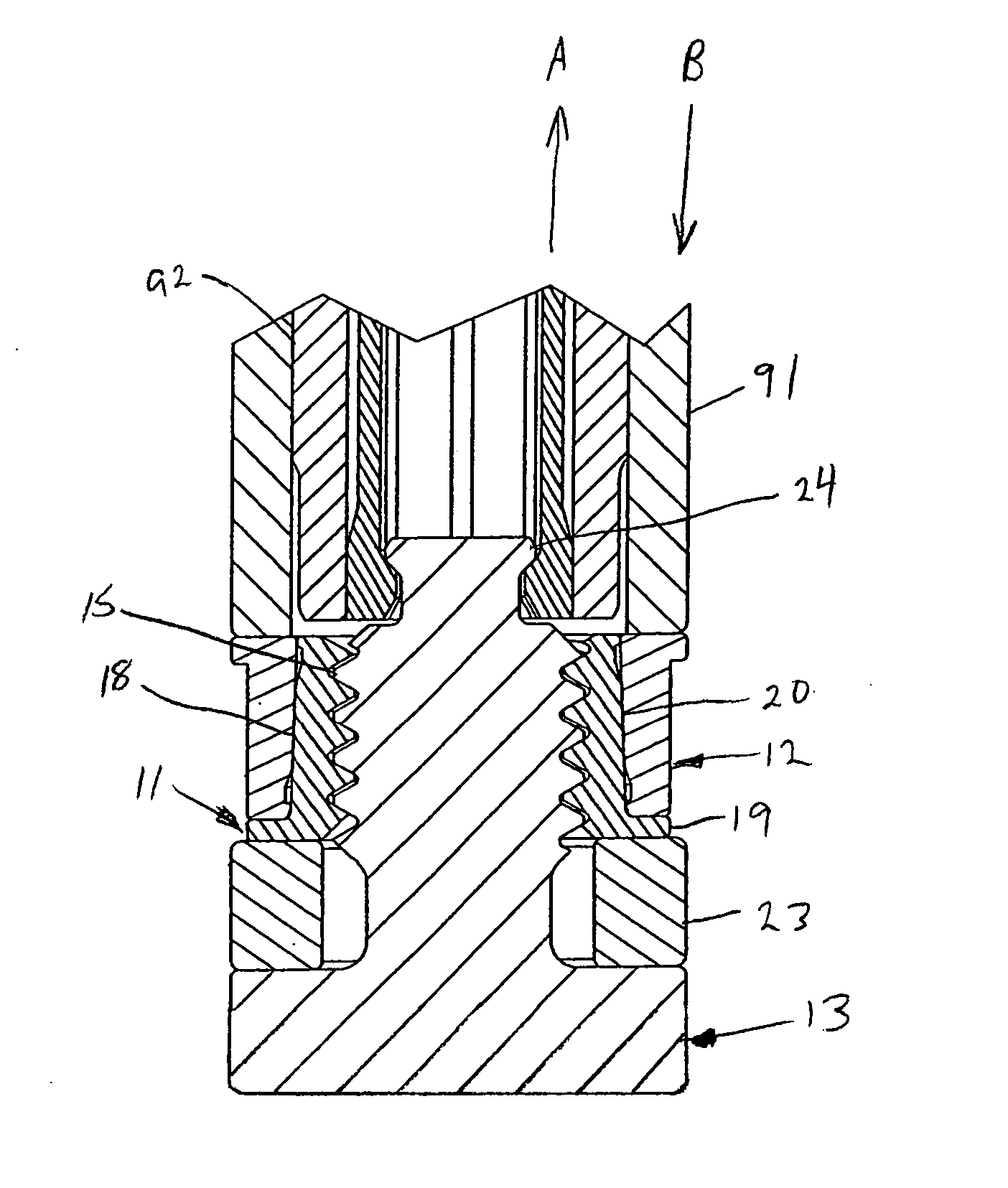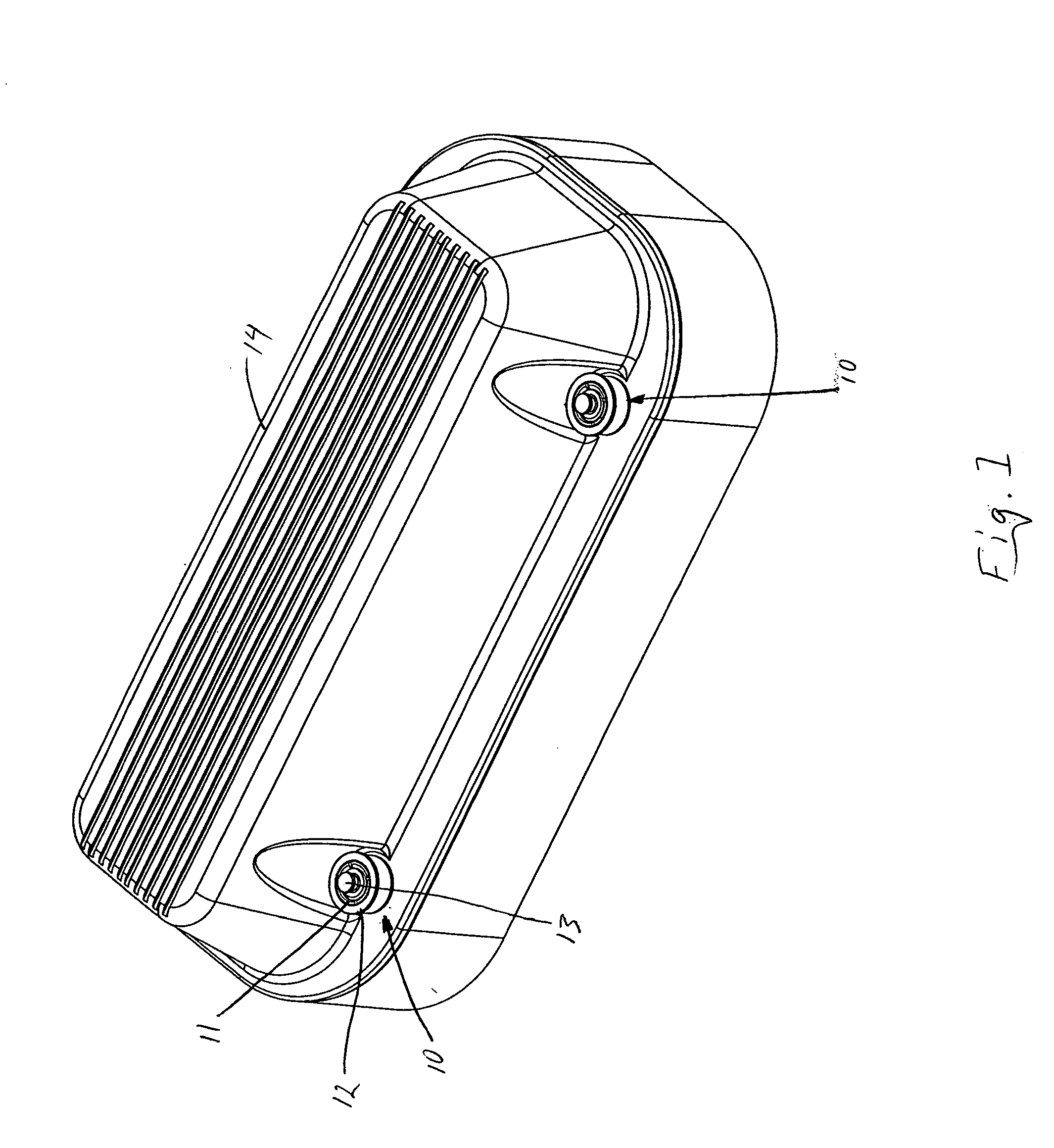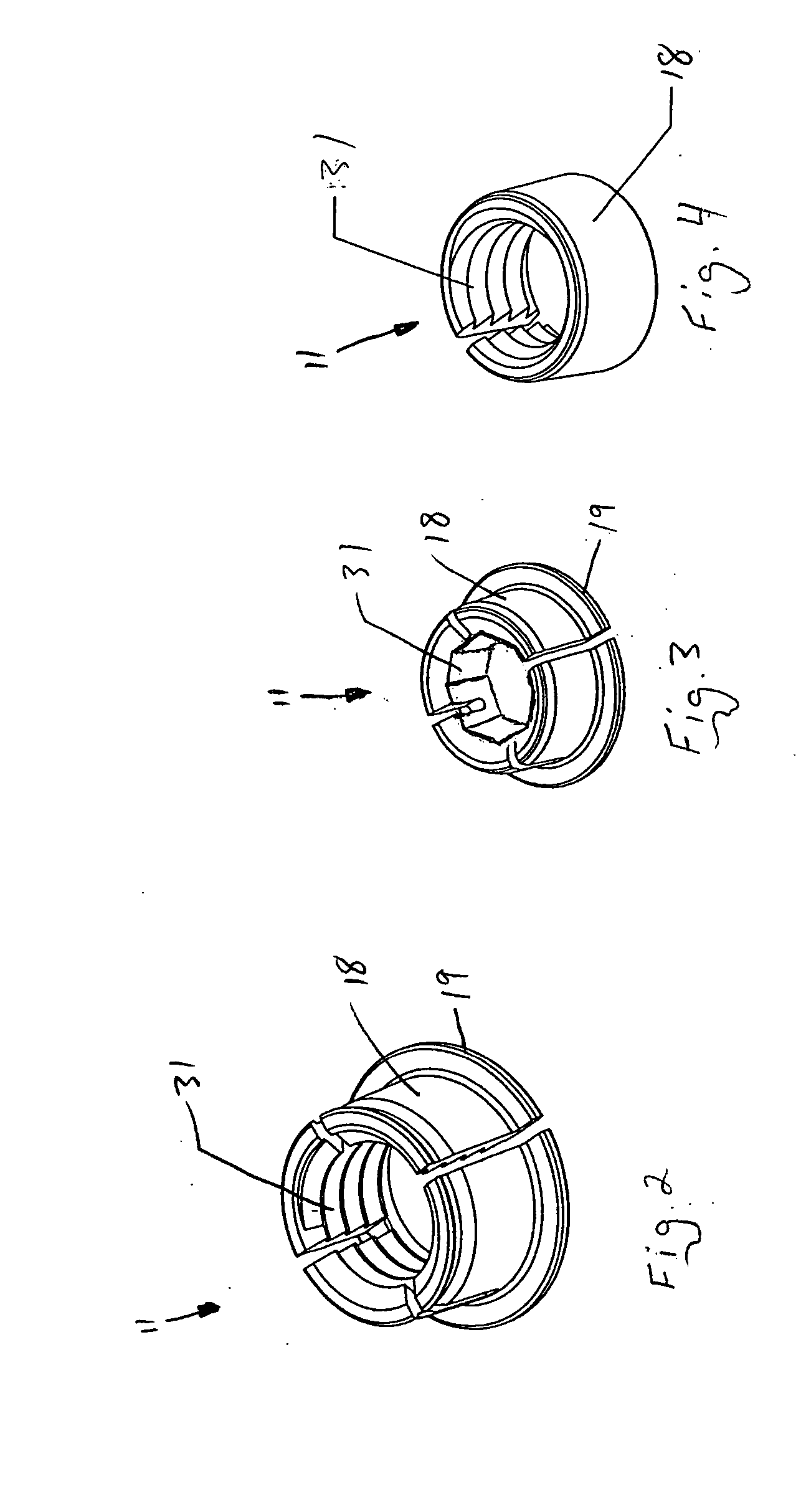Linear fastener system and method for use
a technology of linear fasteners and threaded segments, which is applied in the field of linear fasteners, can solve the problems of limiting the device to light-duty applications, the complexity of the device, and the limited torque which can be applied to the threaded segments, so as to achieve precise tensile loads, precise clamping loads, and linear linear engagement and disengagement.
- Summary
- Abstract
- Description
- Claims
- Application Information
AI Technical Summary
Benefits of technology
Problems solved by technology
Method used
Image
Examples
Embodiment Construction
[0044] Although the invention is described in terms of a preferred specific embodiment, it will be readily apparent to those skilled in this art that various modifications, rearrangements and substitutions can be made without departing from the spirit of the invention. The scope of the invention is defined by the claims appended hereto.
[0045] The linear engaging fasteners 10 utilized to secure the automotive valve cover 14, shown in FIG. 1, are a representation of the general utility of the present invention. The linear fastener generally includes a collet member 11 and a compression ring member 12 which are constructed and arranged to cooperate with a shank member 13. The collet member 11 shown in FIGS. 2 through 4, is slid or loosely threaded over the external gripping surface 15 of a shank member 13 generally shown in FIGS. 8 through 10. The external surface 18 of collet member 11 is tapered or conical in form. The internal gripping surface 31 of collet member 11 is generally co...
PUM
 Login to View More
Login to View More Abstract
Description
Claims
Application Information
 Login to View More
Login to View More - R&D
- Intellectual Property
- Life Sciences
- Materials
- Tech Scout
- Unparalleled Data Quality
- Higher Quality Content
- 60% Fewer Hallucinations
Browse by: Latest US Patents, China's latest patents, Technical Efficacy Thesaurus, Application Domain, Technology Topic, Popular Technical Reports.
© 2025 PatSnap. All rights reserved.Legal|Privacy policy|Modern Slavery Act Transparency Statement|Sitemap|About US| Contact US: help@patsnap.com



